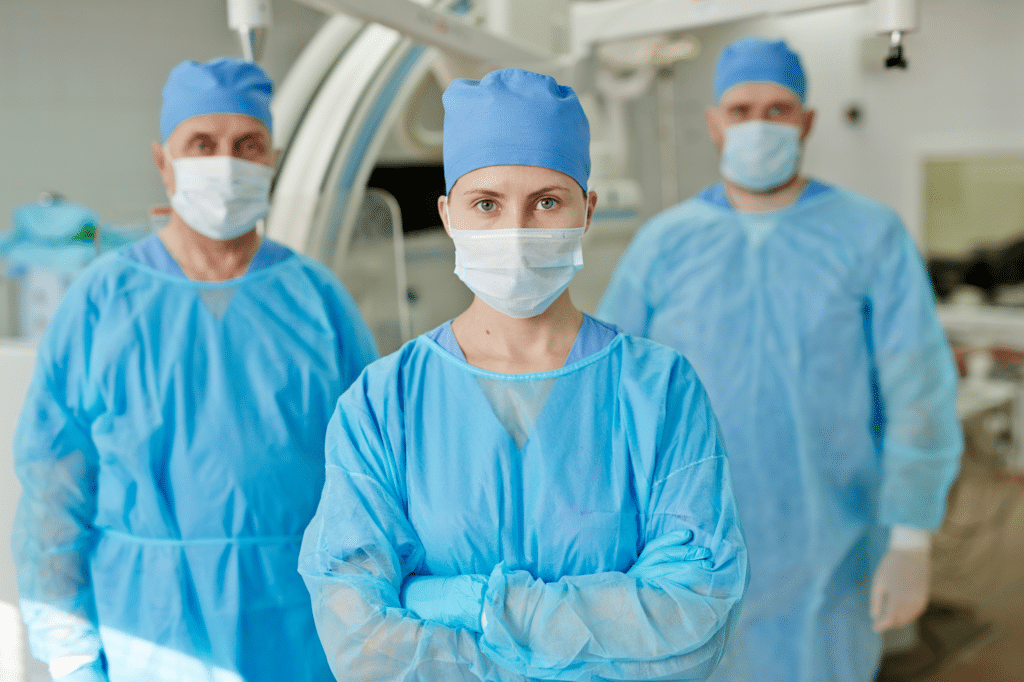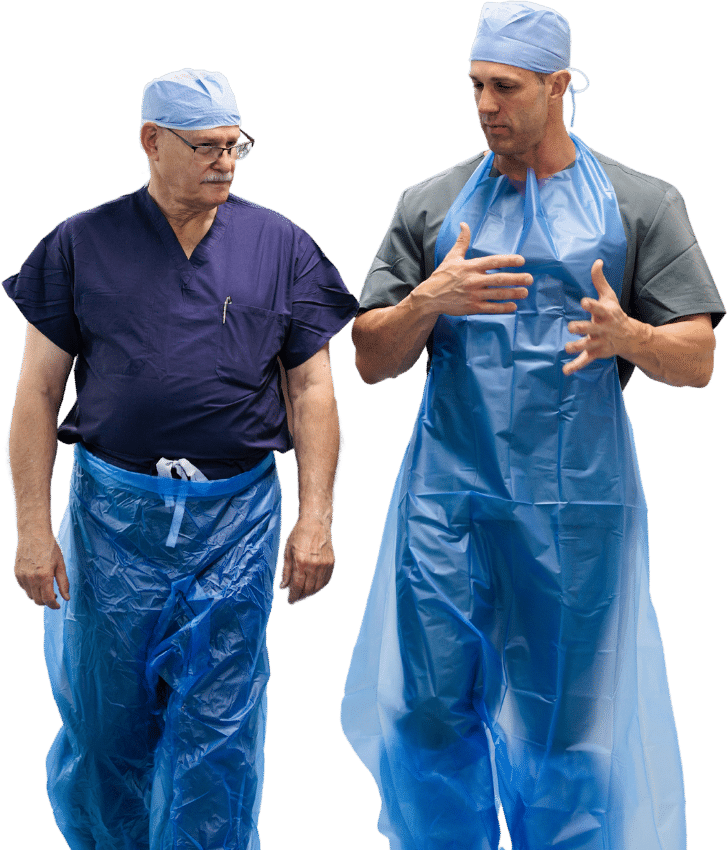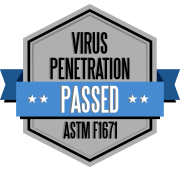Personal Protection Equipment (PPE) aims to create a barrier between the wearer and potential sources of infection or injury. This can include masks, gloves, gowns, face shields, goggles, and respirators. These protective equipment are designed to minimize the risk of exposure to infectious diseases, harmful substances, and physical harm.
While hospitals and healthcare systems have tried to provide PPE to their staff, significant challenges and shortages have occurred. The surge in demand and disrupted supply chains have resulted in difficulties obtaining adequate protective gear. This has put healthcare workers at risk and compromised their ability to provide patient care.
Let’s break down the obstacles the healthcare industry has faced with PPE and how surgeons can rise to the challenge.
Shortage of PPE in Healthcare Facilities
The shortage of PPE in healthcare facilities is a critical issue that emerged during the COVID-19 pandemic. This shortage has put healthcare workers at risk and hindered their ability to care for patients safely.
The surge in demand for PPE, driven by the rapid spread of the virus, has overwhelmed the global supply chain. Manufacturers and suppliers have struggled to keep up with the unprecedented demand, resulting in significant shortages in healthcare facilities. As a result, many hospitals have had to ration their existing supplies and prioritize them for high-risk areas and patients, leaving healthcare workers in other departments vulnerable to inadequate protection.
The consequences of a PPE shortage reverberate beyond immediate health concerns, instilling fear, anxiety, and frustration among healthcare professionals who find themselves inadequately equipped in hospital settings. A pressing need for heightened production, distribution, and strategic stockpiling of PPE echoes as the healthcare industry amps up the frontline defense for any unexpected health curveballs.
The shortage of PPE not only puts healthcare workers at risk but also compromises patient safety. Without sufficient protective gear, healthcare professionals are more likely to contract the virus themselves, leading to increased absenteeism and disruptions in healthcare delivery.
Lack of Standardization in Quality and Availability
One of the key challenges in addressing the shortage of PPE is the lack of standardization in quality and availability. As healthcare facilities scramble to secure necessary supplies, they often face a wide range of products, some of which may not meet the necessary safety standards.
The lack of standardization means that healthcare workers may be forced to wear subpar or inadequate protective gear, putting themselves and their patients at risk. For example, some surgical masks may not provide the necessary level of filtration, allowing infectious particles to penetrate and potentially leading to healthcare workers contracting the virus.
There are several reasons for the healthcare sector’s low availability and quality of PPE supplies. One primary factor is global manufacturing. Many countries heavily depend on imports for their PPE needs, making them vulnerable to disruptions in the global supply chain. Most recently, the COVID-19 lockdown and travel restrictions severely impacted the transportation and distribution of PPE supplies, leading to delays and shortages.
Many healthcare systems and organizations did not anticipate the magnitude of the crisis and failed to adequately prepare for it. This lack of preparedness left them ill-equipped to handle the sudden increase in demand for PPE supplies.
The limited financial resources allocated to healthcare systems also affect PPE supplies’ low availability and quality. Healthcare organizations often face budget constraints and may prioritize other essential areas, such as staffing and medical equipment, over purchasing PPE supplies. This can result in compromised safety measures and a diminished ability to protect healthcare workers adequately.
How This Impacts Surgeons and Patients
Surgeons performing delicate and high-risk procedures have been at a heightened risk of contracting illness, germs, and disease without proper protective gear. This not only jeopardizes their health but can also lead to the spread of the virus within healthcare facilities.
Without adequate PPE, surgeons may be unable to perform certain procedures safely. The fear of limited protection may result in delays or cancellations of necessary surgeries, causing potential harm to patients who require immediate medical intervention.
The impact of inadequate PPE goes beyond the immediate health risks. Surgeons, who are already under immense pressure while performing complex procedures, now face the added stress and anxiety of working without adequate protection. This can lead to decreased focus, increased fatigue, and potential errors, putting patients at greater risk.
Patients, already vulnerable, face heightened susceptibility to infections when exposed to inadequately protected medical staff. The lack of proper gear can lead to the inadvertent spread of illnesses within healthcare settings, impacting recovery rates and potentially causing preventable complications. The collateral impact on patient confidence in healthcare systems is substantial, as the perceived risk of contracting infections during medical interventions rises.
Addressing the dearth of quality PPE is not just a matter of healthcare worker safety; it is a crucial step in safeguarding the health and trust of patients. Urgent measures to enhance the availability and efficacy of protective equipment are essential for maintaining the integrity of healthcare delivery and ensuring optimal patient outcomes.
Physical Health Risks Without Proper PPE
The lack of proper personal protective equipment puts surgeons and other healthcare professionals at significant physical health risks. Surgeons are on the frontline, exposed to the highest risks of contracting infectious diseases. Without adequate PPE, surgeons are at a greater risk of becoming infected.
For example, surgical masks are a vital component of PPE in hospital settings as they help to minimize the risk of airborne transmission of infectious particles. However, shortages of masks have been reported since the COVID-19 outbreak, forcing surgeons to reuse masks or rely on lower-quality alternatives. This not only compromises the effectiveness of the gear but also heightens the risk of infection for surgeons, as regular use and reuse can weaken the protective capabilities of the masks. The physical health risks to surgeons without proper PPE extend beyond the immediate concerns of contracting and transmitting infectious diseases.
Surgeons Demanding Better PPE
With PPE’s challenges and risks in mind, few individuals are as well-versed as surgeons in evaluating PPE options – including design, fit, and usability.
Surgeons know all too well what makes remarkable PPE. They know which masks hold up the best during procedures and which booties keep away mess the best. By demanding better PPE, surgeons ensure their own safety while contributing to the overall well-being of healthcare systems and the patients they serve. Leveraging the knowledge surgeons possess about the distinct requirements of diverse surgical procedures empowers healthcare systems to make well-informed decisions regarding PPE. A surgeon’s expertise is crucial in selecting cost-effective options that are high quality and safe.
Their selection of PPE enables healthcare systems to select more comfortable and tailored equipment – reducing fatigue and enhancing overall performance in hospitals. This inclusion elevates staff satisfaction and morale, fostering greater teamwork and increasing retention rates within surgical teams. Advocating for improved PPE is not merely a solo performance by individual surgeons. Rather, it is a community effort within the medical industry to redefine and elevate safety standards.
Cost-effective solutions are also part of the discourse. Surgeons, often acutely aware of budget constraints within healthcare systems, advocate for PPE that balances quality and affordability. By investing in superior PPE, hospitals can mitigate the long-term costs associated with potential infections or accidents due to subpar protective gear.
Surgeons Choosing the Right PPE
By now, you’ve learned about the challenges the PPE world is facing and the importance of quality PPE. If you’re a surgeon, it’s time to make your voice loud for the healthcare community to hear.
The demand for better PPE extends beyond the operating room; it encompasses a broader commitment to the well-being of healthcare professionals. Surgeons understand that their expertise is a valuable asset, and providing them with top-notch protective equipment is not just a matter of policy but a gesture of respect for their dedication and skill. This demand for better PPE reflects a collective desire within the medical community to create safer and more conducive working environments.
At Sloan Medical, we take quality PPE to heart. Our company’s founder is a successful urologist who pivoted his surgical career to start a company that has become the leading PPE manufacturer in North America.We manufacture highest quality personal protective equipment for medical professionals. Our product lines have been perfected over 30+ years in business and are guaranteed to perform in all environments.
If you’re a surgeon demanding better PPE, choose a product line that improves safety, cost-effectiveness, and staff satisfaction. Surgeons who switch to Sloan never go back — and staff members have never been happier. Let us prove it. Request free samples.
As surgeons raise their voices in unison, hospitals are compelled to listen and respond, recognizing that the investment in better PPE invests in the health and well-being of medical professionals and the patients they serve. The aim is not just for better protective gear but for a symphony of safety that resonates throughout the healthcare landscape.
Personal Protection Equipment (PPE) aims to create a barrier between the wearer and potential sources of infection or injury. This can include masks, gloves, gowns, face shields, goggles, and respirators. These protective equipment are designed to minimize the risk of exposure to infectious diseases, harmful substances, and physical harm.
While hospitals and healthcare systems have tried to provide PPE to their staff, significant challenges and shortages have occurred. The surge in demand and disrupted supply chains have resulted in difficulties obtaining adequate protective gear. This has put healthcare workers at risk and compromised their ability to provide patient care.
Let’s break down the obstacles the healthcare industry has faced with PPE and how surgeons can rise to the challenge.
Shortage of PPE in Healthcare Facilities
The shortage of PPE in healthcare facilities is a critical issue that emerged during the COVID-19 pandemic. This shortage has put healthcare workers at risk and hindered their ability to care for patients safely.
The surge in demand for PPE, driven by the rapid spread of the virus, has overwhelmed the global supply chain. Manufacturers and suppliers have struggled to keep up with the unprecedented demand, resulting in significant shortages in healthcare facilities. As a result, many hospitals have had to ration their existing supplies and prioritize them for high-risk areas and patients, leaving healthcare workers in other departments vulnerable to inadequate protection.
The consequences of a PPE shortage reverberate beyond immediate health concerns, instilling fear, anxiety, and frustration among healthcare professionals who find themselves inadequately equipped in hospital settings. A pressing need for heightened production, distribution, and strategic stockpiling of PPE echoes as the healthcare industry amps up the frontline defense for any unexpected health curveballs.
The shortage of PPE not only puts healthcare workers at risk but also compromises patient safety. Without sufficient protective gear, healthcare professionals are more likely to contract the virus themselves, leading to increased absenteeism and disruptions in healthcare delivery.
Lack of Standardization in Quality and Availability
One of the key challenges in addressing the shortage of PPE is the lack of standardization in quality and availability. As healthcare facilities scramble to secure necessary supplies, they often face a wide range of products, some of which may not meet the necessary safety standards.
The lack of standardization means that healthcare workers may be forced to wear subpar or inadequate protective gear, putting themselves and their patients at risk. For example, some surgical masks may not provide the necessary level of filtration, allowing infectious particles to penetrate and potentially leading to healthcare workers contracting the virus.
There are several reasons for the healthcare sector’s low availability and quality of PPE supplies. One primary factor is global manufacturing. Many countries heavily depend on imports for their PPE needs, making them vulnerable to disruptions in the global supply chain. Most recently, the COVID-19 lockdown and travel restrictions severely impacted the transportation and distribution of PPE supplies, leading to delays and shortages.
Many healthcare systems and organizations did not anticipate the magnitude of the crisis and failed to adequately prepare for it. This lack of preparedness left them ill-equipped to handle the sudden increase in demand for PPE supplies.
The limited financial resources allocated to healthcare systems also affect PPE supplies’ low availability and quality. Healthcare organizations often face budget constraints and may prioritize other essential areas, such as staffing and medical equipment, over purchasing PPE supplies. This can result in compromised safety measures and a diminished ability to protect healthcare workers adequately.
How This Impacts Surgeons and Patients
Surgeons performing delicate and high-risk procedures have been at a heightened risk of contracting illness, germs, and disease without proper protective gear. This not only jeopardizes their health but can also lead to the spread of the virus within healthcare facilities.
Without adequate PPE, surgeons may be unable to perform certain procedures safely. The fear of limited protection may result in delays or cancellations of necessary surgeries, causing potential harm to patients who require immediate medical intervention.
The impact of inadequate PPE goes beyond the immediate health risks. Surgeons, who are already under immense pressure while performing complex procedures, now face the added stress and anxiety of working without adequate protection. This can lead to decreased focus, increased fatigue, and potential errors, putting patients at greater risk.
Patients, already vulnerable, face heightened susceptibility to infections when exposed to inadequately protected medical staff. The lack of proper gear can lead to the inadvertent spread of illnesses within healthcare settings, impacting recovery rates and potentially causing preventable complications. The collateral impact on patient confidence in healthcare systems is substantial, as the perceived risk of contracting infections during medical interventions rises.
Addressing the dearth of quality PPE is not just a matter of healthcare worker safety; it is a crucial step in safeguarding the health and trust of patients. Urgent measures to enhance the availability and efficacy of protective equipment are essential for maintaining the integrity of healthcare delivery and ensuring optimal patient outcomes.
Physical Health Risks Without Proper PPE
The lack of proper personal protective equipment puts surgeons and other healthcare professionals at significant physical health risks. Surgeons are on the frontline, exposed to the highest risks of contracting infectious diseases. Without adequate PPE, surgeons are at a greater risk of becoming infected.
For example, surgical masks are a vital component of PPE in hospital settings as they help to minimize the risk of airborne transmission of infectious particles. However, shortages of masks have been reported since the COVID-19 outbreak, forcing surgeons to reuse masks or rely on lower-quality alternatives. This not only compromises the effectiveness of the gear but also heightens the risk of infection for surgeons, as regular use and reuse can weaken the protective capabilities of the masks. The physical health risks to surgeons without proper PPE extend beyond the immediate concerns of contracting and transmitting infectious diseases.
Surgeons Demanding Better PPE
With PPE’s challenges and risks in mind, few individuals are as well-versed as surgeons in evaluating PPE options – including design, fit, and usability.
Surgeons know all too well what makes remarkable PPE. They know which masks hold up the best during procedures and which booties keep away mess the best. By demanding better PPE, surgeons ensure their own safety while contributing to the overall well-being of healthcare systems and the patients they serve. Leveraging the knowledge surgeons possess about the distinct requirements of diverse surgical procedures empowers healthcare systems to make well-informed decisions regarding PPE. A surgeon’s expertise is crucial in selecting cost-effective options that are high quality and safe.
Their selection of PPE enables healthcare systems to select more comfortable and tailored equipment – reducing fatigue and enhancing overall performance in hospitals. This inclusion elevates staff satisfaction and morale, fostering greater teamwork and increasing retention rates within surgical teams. Advocating for improved PPE is not merely a solo performance by individual surgeons. Rather, it is a community effort within the medical industry to redefine and elevate safety standards.
Cost-effective solutions are also part of the discourse. Surgeons, often acutely aware of budget constraints within healthcare systems, advocate for PPE that balances quality and affordability. By investing in superior PPE, hospitals can mitigate the long-term costs associated with potential infections or accidents due to subpar protective gear.
Surgeons Choosing the Right PPE
By now, you’ve learned about the challenges the PPE world is facing and the importance of quality PPE. If you’re a surgeon, it’s time to make your voice loud for the healthcare community to hear.
The demand for better PPE extends beyond the operating room; it encompasses a broader commitment to the well-being of healthcare professionals. Surgeons understand that their expertise is a valuable asset, and providing them with top-notch protective equipment is not just a matter of policy but a gesture of respect for their dedication and skill. This demand for better PPE reflects a collective desire within the medical community to create safer and more conducive working environments.
At Sloan Medical, we take quality PPE to heart. Our company’s founder is a successful urologist who pivoted his surgical career to start a company that has become the leading PPE manufacturer in North America.We manufacture highest quality personal protective equipment for medical professionals. Our product lines have been perfected over 30+ years in business and are guaranteed to perform in all environments.
If you’re a surgeon demanding better PPE, choose a product line that improves safety, cost-effectiveness, and staff satisfaction. Surgeons who switch to Sloan never go back — and staff members have never been happier. Let us prove it. Request free samples.
As surgeons raise their voices in unison, hospitals are compelled to listen and respond, recognizing that the investment in better PPE invests in the health and well-being of medical professionals and the patients they serve. The aim is not just for better protective gear but for a symphony of safety that resonates throughout the healthcare landscape.
